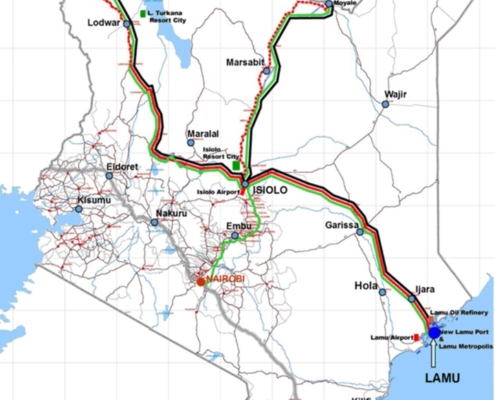Ethiopia-Somaliland port deal puts Kenya’s $25bn Lapsset corridor in the spotlight
Ethiopia’s ambition to secure a route to the Red Sea for military and commercial use over the next 50 years has brought the $25 billion Lamu Port South Sudan Ethiopia Transport (Lapsset) project back into spotlight.
Should Mogadishu approve Ethiopia’s plan, it could economically impact Kenya, which has been encouraging Ethiopia to utilize the Lamu port for its commercial operations. (Somalia has vetoed it: Somalia enacts legislation ‘invalidating’ Ethiopia-Somaliland port agreement)
Initially, Kenya considered Ethiopia a key customer for the Lamu port, especially after South Sudan, an initial major supporter of the project, withdrew due to project delays and funding issues.
Kenya has already invested $1.39 billion in constructing roads and other infrastructure, with only three berths at the Lamu port currently operational. The progress of the Lapsset project has come to a standstill due to financial constraints and escalating security concerns along the project’s route.
Kenya, along with its inland neighbors Ethiopia and South Sudan, had pledged to finance the infrastructure development along the Lapsset Corridor. However, progress has been minimal, with each nation choosing to invest in its own internal projects instead.
The objective of Lapsset is to create a network connecting the three countries through railways, airports, roads, and oil pipelines.
Salim Bunu, the Lapsset regional manager overseeing the Coast, remains hopeful about the project’s continuation. “Ethiopia has completed a number of infrastructure projects connecting to Kenya and they cannot let that go to waste. On our end, we strive to complete the remaining road projects which are 65 percent done to connect Lamu and southern Ethiopia,” he noted to The East African.







 Reuters
Reuters

 Wikipedia
Wikipedia Top10VPN
Top10VPN
Leave a Reply
Want to join the discussion?Feel free to contribute!